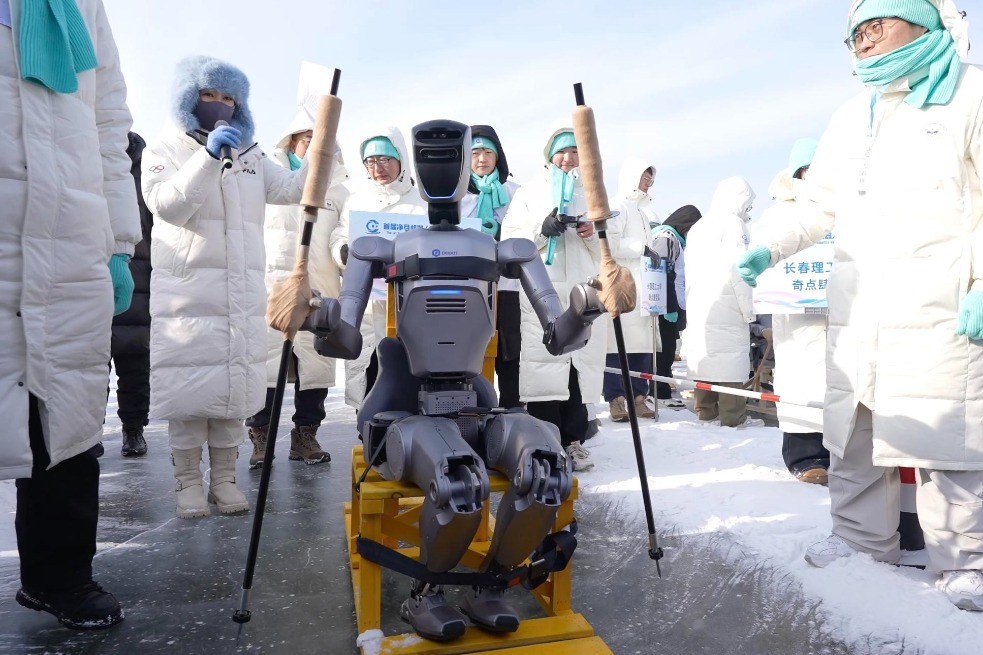Chinese investment flows to US plunge
Outlays in 2019 plumb depths seen in financial crisis amid souring ties

Chinese direct investment in the United States last year dropped to its lowest level since 2009 amid bilateral tensions-and the coronavirus pandemic will continue to weigh on investment flows between the world's two biggest economies, according to a new report.
After big declines in 2017 and 2018, two-way foreign direct investment flows between China and the US flattened out in 2019 as the bilateral relationship continued to sour, according to the study released on Monday.
The report said Chinese FDI in the US dropped to $5 billion-a level not seen since the global financial crisis of 2009-as China's outbound policies, US regulatory scrutiny and an uncertain outlook for US-China relations continued to weigh on investors' risk appetite, the report said.
US FDI in China edged up slightly compared with previous years to $14 billion, as firms continued to bet on Chinese consumer demand while seizing opportunities from an easing of restrictions on foreign ownership in some sectors, including automotive and finance.
The report explained that much of the stability of US investment into China was due to large multiyear greenfield projects geared toward meeting local demand in areas such as automotive and entertainment.
However, newly announced greenfield projects dropped, foreshadowing a slowdown in 2020 that was underway even before the COVID-19 pandemic disrupted the outlook.
The 36-page report, which was issued by the research firm Rhodium Group and the National Committee on US-China Relations (NCUSCR), updates the picture with full-year 2019 data and describes the 2020 outlook in light of a complex tangle of new developments. Those developments include January's phase-one trade agreement between the two countries, the COVID-19 global outbreak and the start of a US presidential election year.
Venture capital
It also identified that two-way venture capital saw a steep drop in 2019 as China's overheated technology market corrected sharply, and US regulators got a mandate to scrutinize early-stage high-tech deals.
Chinese venture capital investment in the US fell to $2.6 billion in 2019, after an uptick of $4.7 billion in 2018.
After dropping to a seven-year low in 2019, the US-China phase-one agreement set the stage for a positive 2020 outlook for bilateral capital flows, according to the report, but COVID-19 changed the near-term outlook and could set in motion dynamics that alter the long-term picture.
The report said that measures to contain the spread of the virus are affecting dealmaking.
Because of real-economy closures and physical restrictions on mobility, China's outbound FDI to the US came to an almost complete stop in the first quarter of 2020.
The report indicated that the coronavirus will spur further debate about global supply-chain reorganization: The scramble over medical supplies has inflamed concerns around the globe about dependence on foreign supplies of certain materials and triggered a serious debate about reshoring and risk diversification.
"China is at the center of that debate, and supply chain diversification could lead US companies to move more manufacturing capacity out of China," the report said.
But the crisis could create opportunities, the report said, adding that equity and credit markets have lost value due to the pandemic, which could generate buying opportunities.
"The trajectory of broader bilateral relations remains important," the report said.
Coming off the phase-one agreement, COVID-19 presented an opportunity for the US and China to work together on crisis mitigation and scientific solutions to end the virus spread, it said.
However, intensifying economic competition and a systemic battle of political systems continue to weigh on the relationship.
"This is a pretty dark picture compared to where we were a few years ago when we started this undertaking. Now, even if we had a very constructive state of mind in Washington and Beijing, it would still take a couple of years to get business confidence back on track," said Daniel Rosen, a founding partner of Rhodium Group.
Stephen Orlins, NCUSCR president, in a statement accompanying the report, said: "Our two countries are still far from decoupled, but the trend lines are not pointing in the right direction."
Today's Top News
- Xi's speech at Central Urban Work Conference to be published
- China completes over 8 million hectares of land greening in 2025
- FTZ helps Kashgar invigorate regional commerce
- Canada, China should eye a fresh start
- US playing with fire on thin Arctic ice
- Party conduct key to clean governance






























